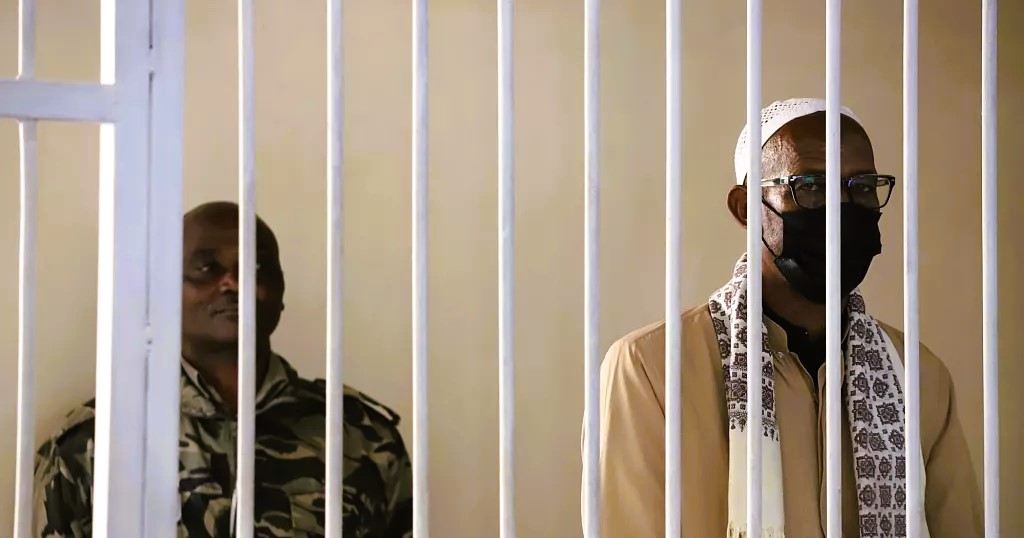Kenyan court finds two men guilty of facilitating 2019 hotel terrorist attack
3 min read
Kenyan court convicts two men for aiding 2019 DusitD2 hotel terror attack that killed 21.
Two Kenyan men have been found guilty of aiding the 2019 terrorist attack on Nairobi’s DusitD2 hotel complex, an assault that left 21 people dead and at least 28 others injured. The Nairobi High Court delivered the verdict on Thursday, bringing a significant chapter of the long-running case to a close. Justice Diana Kavedza, presiding over the trial, declared that the prosecution had successfully demonstrated that Hussein Mohamed Abdille Ali and Mohamed Abdi Ali provided critical support to the attackers. According to evidence presented in court, the two men helped finance the plot and procured forged identity documents that allowed the perpetrators to evade detection.
The DusitD2 hotel attack, which took place in January 2019, shocked the nation and the international community. Armed militants stormed the upscale hotel and office complex in the heart of Nairobi, firing indiscriminately and setting off explosions. The siege lasted several hours, leaving behind scenes of chaos, destruction, and grief. The Al-Shabab militant group, affiliated with Al-Qaida, quickly claimed responsibility. The Somalia-based group has frequently targeted Kenya in retaliation for the country’s military intervention in Somalia, which began in 2011. Over the years, Kenya has suffered several high-profile attacks attributed to Al-Shabab, including the 2013 Westgate Mall attack that killed 67 people and the 2015 Garissa University massacre that claimed 147 lives.
During the trial, the prosecution called a total of 45 witnesses, including security personnel, forensic experts, and individuals involved in the investigation. Their testimonies helped link the two convicted men to the planning and logistics of the deadly assault. The court heard how financial transfers were traced back to the defendants, revealing a network of coordination designed to assist the attackers. Additionally, falsified identity papers, allegedly arranged by the convicts, were key in allowing the attackers to infiltrate the high-security complex undetected. The judge emphasized that such acts of facilitation, even without direct participation in the violence, carry serious consequences under Kenyan anti-terrorism laws.
A third suspect, Mire Abdulahi, who had been charged alongside Hussein and Mohamed, previously entered a guilty plea and was sentenced. His cooperation reportedly helped authorities piece together aspects of the plot. In her ruling, Justice Kavedza ordered that a probation report be compiled within 21 days to inform the sentencing process. The two men are expected to be sentenced on June 19, and they face the possibility of lengthy prison terms given the gravity of their offenses. The verdict has been welcomed by security officials and families of the victims as a step toward justice, though many say it cannot erase the pain and trauma caused by the attack.
The impact of the DusitD2 hotel siege was felt globally. Among the dead were foreign nationals, including an American and a Briton, highlighting the international scope of the tragedy. In the wake of the attack, Kenya ramped up its counter-terrorism efforts and increased security at public spaces and key infrastructure. Despite these efforts, Al-Shabab continues to pose a serious threat in the region, launching frequent attacks in both Somalia and Kenya. Kenyan security agencies have reiterated their commitment to dismantling terror networks and bringing all collaborators to justice.
As the sentencing date approaches, many eyes will be on the Kenyan judiciary to see how it delivers justice in this landmark case. The outcome is expected to set a precedent for how the country prosecutes those who aid and abet terrorism, even from behind the scenes. With Al-Shabab remaining a persistent danger, the case also underscores the importance of regional cooperation and vigilance in counter-terrorism efforts. For now, families of the victims and the broader Kenyan public can take some comfort in the fact that accountability is being pursued in the aftermath of one of the nation’s darkest days.





